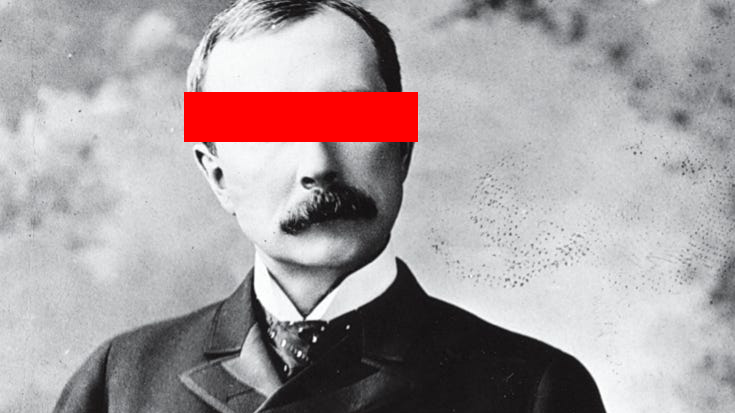The Operator: David Geffen and the New Hollywood by Thomas R. King Summary
David Geffen is a media executive who started his career in the music industry before transitioning to film. He is the co-founder of DreamWorks. Throughout his career, Geffen ruthlessly pursued fame, power, and money.

Summary
David Geffen is a media executive who started his career in the music industry before transitioning to film. He is the co-founder of DreamWorks SKG, a film and entertainment company founded in 1994 by Steven Spielberg, Jeffrey Katzenberg, and David Geffen. Throughout his career, Geffen ruthlessly pursued fame, power, and money, and was known for being passionate about his business, though some have accused him of not having "soul in the game," or a genuine passion for his work.
Geffen was known for his ambition and his willingness to work hard, often putting in 14 hour days to get ahead in his career. He believed that 90% of happiness in life comes from the people you surround yourself with and what you do for a living, and he used every opportunity as a launch pad to further his career, believing that there are no limits, only plateaus. In order to achieve his goals, Geffen was willing to be bold and go after key people, even if it meant kissing up to them or using underhanded tactics to get what he wanted. Some have even accused Geffen of being a sociopath due to his lack of morality in pursuit of his goals.
Geffen was heavily influenced by the people he read about in biographies, particularly MGM co-founder Louis B. Mayer, and he was a hard-working and talented Hollywood power broker. However, he was also known for being volatile and for screaming at people, including the author of a biography about him. Geffen's own brother even said that Geffen was "bad," and Geffen's mother told him that he was special and had the "Midas touch."
Geffen was also known for his business acumen, particularly when it came to financial matters. He believed in the importance of controlling costs and expenses and of owning equity and masters in order to ensure the success of a business. He practiced what he preached, negotiating lower prices for expenses and eventually selling his first record label for $7 million before later selling Geffen Records for $550 million.
Despite his success, Geffen struggled with imposter syndrome and depression, and he was deeply affected by his relationship with his father, who he saw as a failure and tried to avoid becoming like. Geffen did not have a college degree, but he saw this as a point of pride, believing that he could succeed without one. He also had a complex about his appearance, being 5'7, Jewish, ugly, scrawny, and gay, and wanting to be taller, more handsome, and straight. Ultimately, Geffen's primary goal seemed to be the acquisition of money, and he used whatever tactics were necessary to achieve it, including flattery and ingratiation with older, powerful people and then burning those bridges after he got what he wanted.
Notes
- Geffen ruthlessly pursued fame, power, and money.
- You want to have soul in the game. Essentially, be passionate about your business. It comes from Nassim Taleb’s book Skin in the Game. Geffen did not have soul in the game, he was money-focused.
- 90% of your happiness in life comes from who you surround yourself with (spouse, friends, etc) and what you do for a living.
- Geffen is probably a sociopath.
- Geffen and Steve Jobs understood that life is malleable. You can change life and mold it by your actions.
- Buffett was Geffen’s hero. Geffen read The Making of an American Capitalist.
- Geffen was heavily influenced by the people in biographies he read. Like MGM co-founder Louis B. Mayer (this book is mentioned ~6 times throughout the biography).
- Geffen was a hard-working and talented Hollywood power broker.
- David Geffen’s brother said that Geffen was bad. Geffen even screamed at the author of the book.
- David Geffen was told that he was special and had the Midas touch by his mother. Kind of like what Donda did to Kanye.
- Watch your costs. Look at all of your expenses and negotiate lower prices.
- If you think of yourself as head and shoulders above everyone, you will be. — Geffen’s mother
- David was 5’7, Jewish, ugly, scrawny, and gay. But he wanted to be 6’1, handsome, and straight.
- All he wanted was money.
- David did not do higher education. It was a point of pride for him that he succeeded without a degree.
- David would flatter older people in positions of power and use that relationship to further his career. (But then, incorrectly, he would burn the bridge and talk bad about them after he got what he wanted.)
- Geffen had no morality. He would use any tactic to get to his goals.
- Your 20s are the perfect time to go above and beyond. Working 14 hour days to get ahead in your career.
- Never stay where you are. Use every opportunity as a launch pad to further your career.
- There are no limits, only plateaus. One you reach a plateau, move up.
- Be bold. Go after key people irl. Go up, introduce yourself, kiss-ass, and ask for a meeting or interview.
- Geffen had a passion for movies but when he was 22, someone in the movie industry told him that he couldn’t be successful in movies so young and that he could be successful in music. So Geffen switched to music simply because he wanted money.
- He sells record labels and becomes monetarily successful.
- As a music artist, own your masters. As an entrepreneur, own equity.
- He’s a music agent and manager.
- He becomes a millionaire in his early 20s.
- David had imposter syndrome.
- David often screamed at people. He realized that his anger could scare people into giving him what he wanted.
- David’s father was a failure who had never gained respect. David was worried about being like him.
- Record company makes money on publishing. Management company makes money on touring.
- Always avoid spending too much money. High expenses is what kills businesses.
- Geffen, like a narcissist, sees himself as good. He says he sleeps well knowing he isn’t a liar or a cheat. But he would lie and cheat every day. He would blame everything on other people (victim complex).
- He sold his first record label at age 30 for $7 million.
- He was deeply depressed because money didn’t solve his problems.
- Geffen was able to get the other 50% equity of Geffen Records from Warner Brothers for free. Then he sold it to another company for $550 million.
- Geffen uses some really dirty tactics like ruining the reputation and relationship (between him and his wife) of one of the men he has to do the deal with. This makes it so that he will only have to do the deal with one of the men (Ross).
- Then Geffen makes demands from Ross. Geffen will own all if Geffen records and that Geffen can sell it.
- Ross was worried that Geffen would make a public statement if he didn’t accept Geffen’s demands, so he gives him Geffen Records for free even though Ross had spent millions on it and gave Geffen the opportunity to build it.
- Geffen says that Steven Spielberg is greedy, maniacal, and self-centered. Geffen doesn’t realize he’s the same.
- Geffen later becomes business partners with Spielberg when they found Dreamworks.
- The successful don’t succeed because they’re perfect. They succeed despite their imperfections because they focus on what they’re good at.



Comments ()